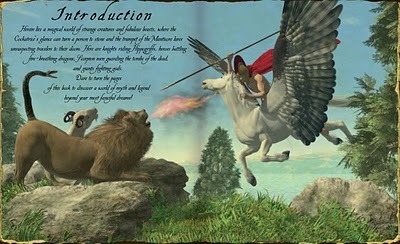SPOTLIGHT: Lynn Cullen on what makes a reader
Today on the blog, I'm very pleased to host Lynn Cullen, the author of the brilliant novel MRS POE which I enjoyed immensely. Here she talks about what makes a reader:
[image error]
You are What You Read
Most authors will tell you that they grew up with a lot of books in their house, but I can’t.
We had two bookcases in our house, one mostly devoted to a set of encyclopedias, the other full of novels my sisters had read decades earlier, books which had been popular in the 40’s, but had fallen out of favor—but not out of our bookshelves—by the 60’s.
Other hoary tomes sat next to the Booth Tarkington and Ayn Rand novels. In particular I was fond of a venerable medical dictionary from the turn of the century, illustrated in full color for at-home instruction. I spent many a fascinated hour looking at the picture of the full-term baby shown in a cross section of a pregnant woman’s body. I fervently loved that pink baby, huddling there in her magenta womb, sucking her thumb and holding the viscous purple rope of her umbilical cord like a plaything.
There, too, was an ancient cookbook from which, at thirteen years of age, I taught myself how to prepare a turkey for Thanksgiving, once my mother, worn out from cooking for nine, threatened to heat up a pre-made frozen turkey roll for our feast. I became a whiz at creamed peas-- I could whip up a white sauce faster than Betty Crocker. Everything I learned about the basis of cooking came from that volume used by homemakers in the Great Depression.
Another shelf favorite was the row of Reader’s Digests, back issues which had at last found their final resting place after serving time in the bathroom and the glove box of the family car. (It was from my dad that I developed the habit of keeping reading material on hand at all times.) While each of these various reading sources played a critical part in my development, it was the gift set of books given one Christmas that put me on the road to who I am today.
They were meant for the whole family: eight volumes collecting literature from around the world for young people. There was a volume on Folktales, one on Children’s Stories, another on Legends and Myths, one on Adventures, and so on. I read them all, as I read the whole set of encyclopedias—this is what you do when the selection at home is limited and you’ve already read every fictionalized biography and novel in the children’s section in your local library. I don’t recall my siblings ever touching the set. They felt like a personal gift.
It was the myths and legends that spoke most clearly, introducing me to the way people thought back in time and in faraway places. I developed a taste for history not seen in textbooks, history that had little to do with wars and dates, but about how people have thought through the centuries. I loved how the Greek gods were just like us—jealous, petty, desirous, yet noble, wise, and sometimes kind. Same for the myths and legends of Native Americans, the ancient Romans, the Egyptians: the actions of their gods and heroes ran the gamut of the best and worst in human compulsions. They were character studies writ large.

The Illustrated Guide to Mythical Creatures
I didn’t realize it then, but through these books, I was learning everything that I needed to know as a novelist. These “children’s tales” contained explorations of every native weakness and glory inherent to our kind. They fed my unconscious with sympathy, horror, and love, mostly love, for our perplexing species. They gave me the empathy for our complicated tribe that is crucial for any novelist who cares about examining how we tick.
It can be said that books have made me what I am. Perhaps, in our individual ways, this is true of us all.
PLEASE LEAVE A COMMENT - I LOVE TO KNOW WHAT YOU THINK
Published on January 07, 2014 05:00
No comments have been added yet.



